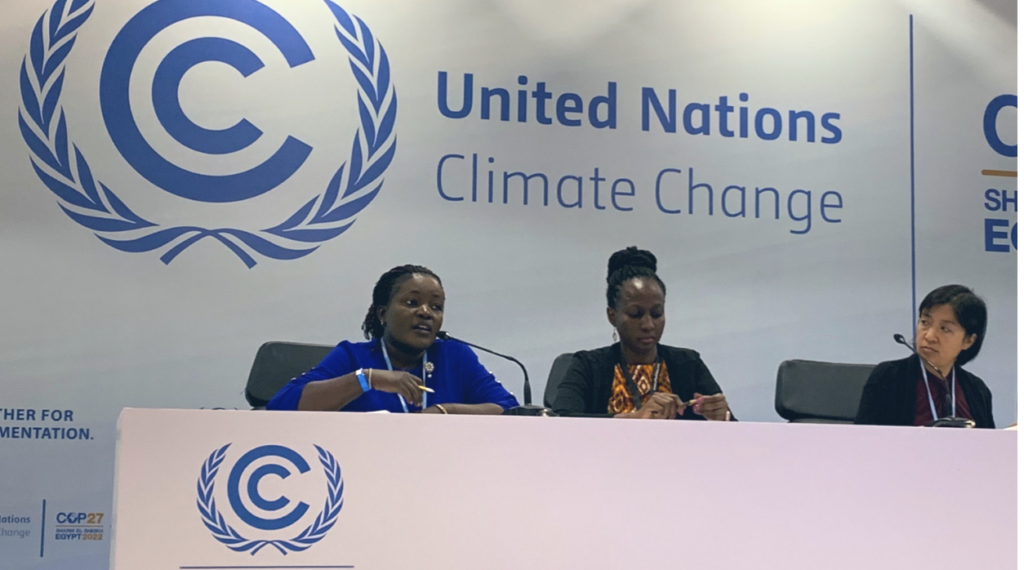If there’s one thing most farmers can agree on, it’s that agriculture is about more than just food. The way we grow, harvest, and distribute food is inseparable from the well-being of the people who grow and eat it, and, as delegates from Regenerate International (RI) and African Food Sovereignty Alliance (AFSA) argued at the 27th Annual United Nations Climate Change Conference (COP 27), the future of the planet itself.
The results of this year’s conference were mixed. Although wealthy nations agreed for the first time to pay for damage in countries most affected by climate change, leading climate activists are quick to point out the lack of agreement on reducing fossil fuel emissions. One delegate commented that without any emissions reduction, the payment is nothing more than a “down payment on disaster”.

While the presence of RI and AFSA COP 27 demonstrates that food sovereignty and regenerative agriculture, both guiding features of Agrarian Trust’s work, are gaining ground in the global fight against climate change, the demands of both organizations were left out of the COP 27 agreement.
African Food Sovereignty Alliance is a heavy hitter in the world of food sovereignty, and the largest civil society organization in Africa, representing a constituency of more than 200 million farmers, pastoralists, fisher folk, and other agriculturalists across the continent. AFSA hosted events advocating for agroecology, and submitted a position paper that demanded investment in agroecology as a locally driven solution to the climate crisis.
“The management of soils and their organic matter, and their capacity to sequester carbon,” Regenerate International argued, “must be in every negotiation and commitment since it is the hope we have for a livable planet.”
Regenerate International, an international organization that aims to “reverse global warming and end world hunger by facilitating and accelerating the global transition to regenerative agriculture and land management,” had a similarly strong message.
“The management of soils and their organic matter, and their capacity to sequester carbon,” Regenerate International argued, “must be in every negotiation and commitment since it is the hope we have for a livable planet.”
“It was very disturbing to see a large contingent of corporate lobbyists influencing the process while small-scale farmers have been shut out and drowned out from this COP27,” said Dr. Belay.
A growing body of evidence, including a report by the Intergovernmental Panel on Climate Change, supports Regenerate International’s claim. Regenerative agriculture practices, many of which are used by Agrarian Commons farmers, have the potential to remove carbon from the atmosphere and greatly mitigate the effects of climate change.
Unfortunately, both organizations’ central demands were left out of the COP 27 agreement. According to Dr. Million Belay, the AFSA General Coordinate, this was largely due to the outsized influence of corporate lobbyists and agribusiness at the conference.
“It was very disturbing to see a large contingent of corporate lobbyists influencing the process while small-scale farmers have been shut out and drowned out from this COP27,” said Dr. Belay. “Farmers demanded recognition for diverse, resilient farming, agroecology and climate finance, but they leave with very little.”
The lack of an effective response to climate change on the part of global leaders, and their refusal to accept the key role of agroecology and food sovereignty is disappointing, to say the least. As these leaders continue to ignore the enormity of the crisis at hand, it is even more important to support the work of on-the-ground organizations like Agrarian Trust, African Food Sovereignty Alliance, and Regenerate International as they work to mitigate the worst effects of climate change.


